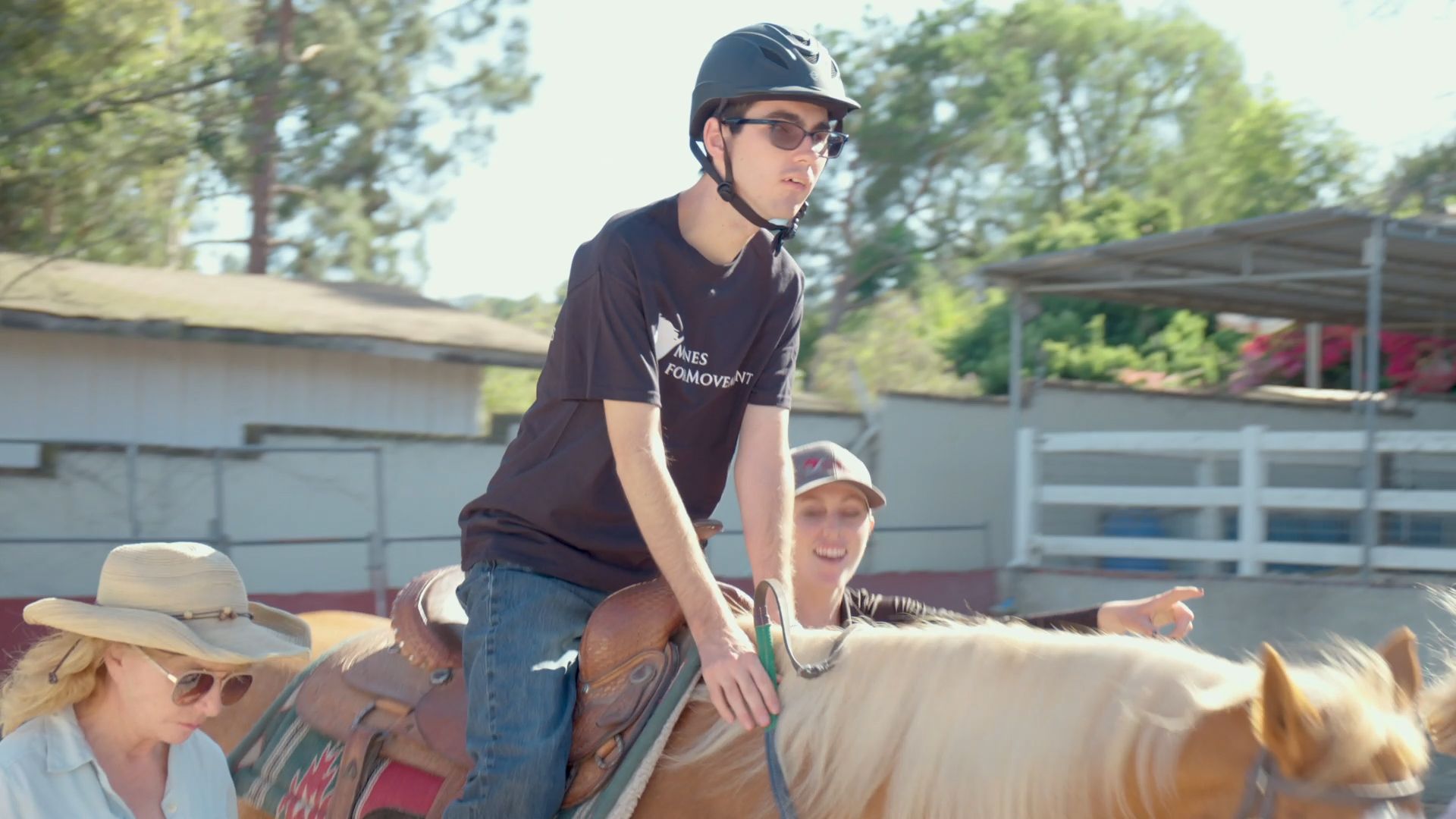Adaptive Horseback Riding
Adaptive horseback riding, also known as therapeutic horseback riding, focuses on the development of horsemanship and horseback riding skills for people with a variety of abilities. The purpose of adaptive riding is to positively influence the cognitive, physical, emotional, and social well-being of individuals with special needs. Adaptive riding lessons are taught by PATH certified therapeutic riding instructors. These instructors have extensive horse experience, as well as experience working with people with special needs. Instructors use their knowledge to adapt the tack or lesson plan to assist the client in achieving his or her specific goals.
Adaptive horseback riding utilizes a variety of mounted and unmounted activities to accomplish the particular objectives of each client. Physically, riders can exhibit improvements in flexibility, posture, coordination, balance, and muscle strength. Adaptive riding lesson plans involve many exercises that can help develop sequencing, patterning, and motor planning skills. Clients can develop a sense of responsibility and independence while caring for their equine partners. Teamwork and social skills are developed as clients connect with others over a shared activity and interest. In addition to these benefits, clients can find an enhanced quality of life and life-long enjoyment in a fun outdoor sport.
Manes for Movement currently partners with California Regional Centers to provide Adaptive Riding services free of cost to families who qualify through their social recreational funding, and self-determination program.


